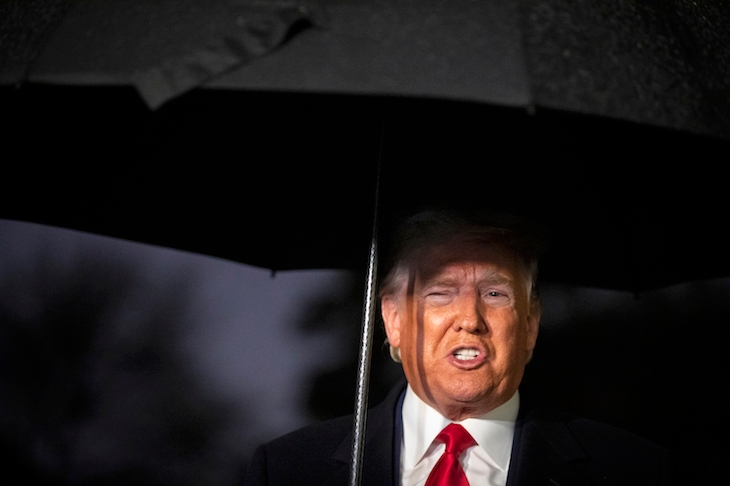After 17 witnesses, weeks of closed-door depositions and public hearings and a lot of heated back-and-forth between the parties, it has all come down to this: the unveiling of the formal articles of impeachment. Early on Tuesday morning, the six Democratic chairs who have been investigating President Trump on everything from obstruction of justice to violations of the Constitution’s Emoluments Clause strode up to the podium and delivered a single unifying message—the President of the United States threatens the country’s democracy every day he remains in office.
As House Judiciary Committee chairman Jerry Nadler told the assembled reporters, ‘President Trump violated his oath to the American people. He placed his own private interests ahead of our own national security and the integrity of our elections. Such conduct is clearly impeachable. This Committee will proceed accordingly.’
The 9-page impeachment resolution focuses on two counts: abuse of power and obstruction of Congress. The former goes to the heart of the impeachment inquiry, where Trump allegedly held $400 million of US military aid to Ukraine and a head-of-state White House visit contingent on Ukrainian President Volodymyr Zelensky launching a corruption inquiry against the Bidens. The latter concerns the White House’s order to administration staff to not cooperate with the investigation, an act that some officials in the State Department, the Defense Department, and National Security Council nonetheless defied by showing up for depositions. It was the obstruction of Congress charge that seemed to have captured much of the Democrats’ anger. ‘In the history of the Republic,’ the resolution reads, ‘no President has ever ordered the complete defiance of an impeachment inquiry or sought to obstruct and impede so comprehensively the ability of the House of Representatives to investigate High Crimes and Misdemeanors.’ Even Richard Nixon, the favourite villain in American politics who engaged in one of the most elaborate cover-ups in US political history, wasn’t scolded in such a way.
Trump reacted with the predictable fuselage of anger and contempt for the proceedings. White House press secretary Stephanie Grisham did what she has been doing every day since she took the job as Trump’s spinmeister: blast the Democrats for running an unfair process with a ‘pre-determined outcome.’ The President himself is livid and seems to believe he is immune to the indignity of being investigated. House Republicans remain in lock-step behind their President, who over a single term has single-handedly turned the Republican Party from a collection of anti-Trump establishmentarians into a bona fide extension of the Trump family brand. At this point, House Republicans have long subjected themselves to criticism as Trump’s lapdogs—criticism they appear to take as a compliment rather than an insult.
The American people know how this movie is going to end. On Thursday, the Judiciary Committee will forward the articles of impeachment to the full House, where the vote will be approved with no GOP defections. In the new year, the Senate will take up the charges and do its best to sit silently, hear the prosecutors and defence team make their cases, and act like an impartial jury. But the verdict – acquittal – is all but pre-ordained. The chance of Republicans in the Senate convicting one of their own is about as small as Donald Trump and Hillary Clinton patching up their differences and becoming best friends. It’s not going to happen.
So, by the time February 2020 hits, this entire impeachment drama will have ended as many thought it would when House Speaker Nancy Pelosi first authorised it. Trump will be the third President in U.S. history to be impeached. But he will serve out the remainder of his term and indeed use the impeachment proceedings as cannon-fodder on the campaign trail as he seeks re-election. And many Americans will continue with their daily lives and wonder if the last 5 months were worth the effort.






Comments